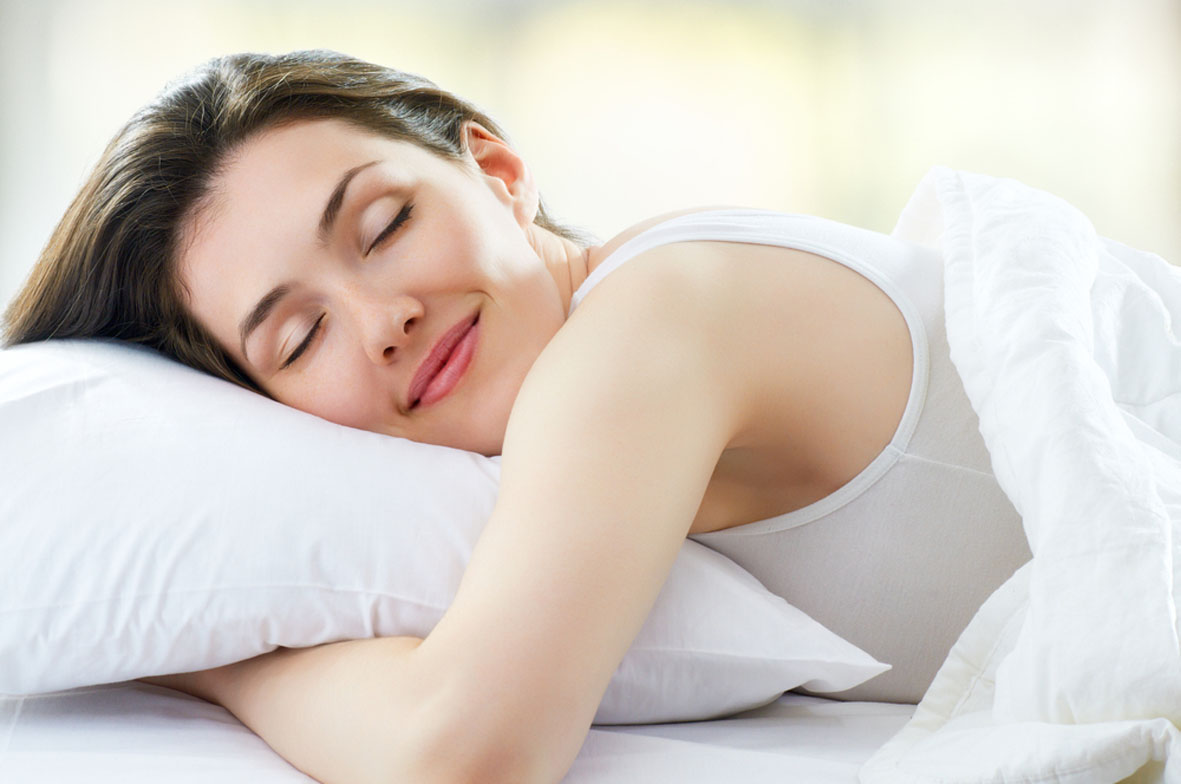Shahnaz Husain
Adequate and regular sleep is very important to maintain natural beauty and delay the manifestation of aging signs. During sleep, the body is most relaxed and the essential body processes slow down. This is when the repair and restoration process of the body goes on and the renewal of new cells speeds up.
Blood circulation to the skin surface also improves while we sleep. This helps to add a healthy glow to the skin. No wonder, we call it “beauty sleep.” On the other hand, lack of sleep reflects itself on the skin and eyes. The skin looks pale and dull. Fatigue also shows up in the eyes. In fact, lack of adequate sleep affects both beauty and health.
An average adult needs seven and a half to eight and a half hours of sleep every night. However, what constitutes “adequate sleep” can be an individual matter. Some people function well enough with less sleep, while others need 7 to 8 hours of sleep daily. Many have problems going off to sleep and there are those who have disturbed sleep, getting up every one or two hours. These patterns can be due to our stress levels and our ability to cope with stress. In every human being there is a “sleep point.” It is up to each one of us to discover it. If yours is 11.30 p.m. and you have been watching TV till 1 a.m., you have missed the “sleep point” and may have trouble falling asleep.
Tips to help you sleep:
Your sleep attitude is important. Have regular hours for going to sleep and waking up. Have a time when you go to sleep everyday and keep to it. Try to break the connection between work and stress a little before going to sleep. This can be done by having a short period of relaxation, when you do something else. A pre-sleep ritual can help…… like having a hot bath, or reading something light, having a glass of warm milk, or meditating, which is great for calming the mind. Try doing deep breathing, breathing in and out slowly and deeply. This also helps to calm you and induce relaxation.
Recent studies also show that the increasing use of smart phones, tablets, etc., just before retiring for the night actually keeps one awake. It seems the blue light from the screens can lead to insomnia. Doctors advise stopping the use of smart phones and other gadgets two hours before sleep. The mind should be clear and at rest.
Have a light dinner well before bedtime. Do not go to sleep immediately after a meal and also avoid exercising before bedtime. Avoid having stimulants like coffee before bedtime. Instead, add one tablespoon of honey to a glass of warm milk and have it before bedtime. It is said that minerals like calcium and magnesium help sleep by inducing relaxation and calming the mind. Many of the B Vitamins are also said to help sleep.
It’s a good idea not to keep your television in the bedroom. You can try reading a book. It may make you feel drowsy. Have a bed switch to turn off the lights, so that you do not have to get out of bed. Your bed should be comfortable and firm and the room temperature should be comfortable too. Draw the curtains, if street lights or other lights are visible.
Doctor’s suggest a simple and effective way of dealing with the problem: Sleep Masks! It is made with material that keeps away light and makes it easier to fall asleep. So, having a sleep mask on would help to keep any light in the room from disturbing you. So, if you are having trouble sleeping, try a sleep mask. Try it on before buying it, as it should fit comfortably round your head. A comfortable sleep mask should have elastic that does not fit too tightly around the head. It is said that a sleep mask is a way of having restful and undisturbed sleep.
However, if you have severe insomnia and these tips do not help, you should get a doctor’s advice and treatment.
(The author is a beauty expert)
Trending Now
E-Paper


